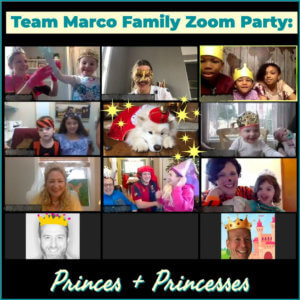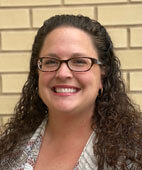Teaching AP® Online: Helping Kids Adjust to the “New Normal” of Online Learning
by Heather Garcia
I have organized the linen closet. My children and I have scrubbed the yard toys (toy-car wash style). I have lesson plans prepared for the next three weeks, and yet, I can’t seem to find any way to settle myself. I miss my normal routine. And I know I am not alone.
I keep thinking about my students, my precious AP® Language and Literature kiddos who have worked so hard for me over the past one to two years (because I am blessed enough to teach them for both AP® Language junior year and AP® Literature senior year). I keep thinking about providing them valuable lessons to continue their education and to continue working toward the AP® test, but I am also thinking about ways I can support them emotionally. The juniors are struggling with the new online learning, but I have hope that I will see them face to face in my classroom next school year.
But this group of seniors… I’m worried for them. Not only are proms and graduation ceremonies in danger of not happening, these seniors are struggling with major career decisions now that they see which jobs can be wiped away overnight and which are considered “critical” in our new-normal. Kids are struggling to see themselves moving away from home and living in a dorm now that they see how quickly they could be forced to relocate right back. New-normal may look just like old-normal after some time, but it also may not. That can be a scary concept for a young adult ready to launch into the world. Heck, it is a scary concept for me at times.
As a teacher I have a critical-need job, but my position is in a state of flux. I am teaching literature from my computer while my eight-year-old and a three-year-old dance around me playing pirates with plastic bats. I know that I am not alone. And what is nice is that, in an effort to provide the Marco Learning kids a chance to feel connected, Marco hosted a princess/prince party for the kids of the employees of the company. The kids (and some of the adults) dressed up and put on a party for the little people in our lives who are missing so much of their old-normal.

I want to take this moment to suggest that we all work something like this in for our AP® kids. They may not be eight and three. They may not be wielding plastic bats at one another (although… they may) or dressing in tiaras and paper crowns, but these bigger kids are missing some important social elements in their lives, too. I know they are on social media. I know they are participating in online learning. I realize that they are connected in many ways. But they aren’t connected in our rooms, with their classmates. They aren’t connected beyond their friend groups. They aren’t connected with a purpose.
So yes, we need to schedule some valuable online learning opportunities for our students, but we may also need to schedule some town-hall-style video sessions as well. I am not in the hallway greeting them as they come in, so I am missing the quick chats, the face-to-face moments that make teaching great, the moments of connection where students who don’t normally talk outside of school get a chance to interact and learn from each other.
Here are some topics for live town-hall-style online sessions. If they must have academic merit, have students write a reflection paragraph at the end. But if not, if you are allowed to just have the time with your kids, do so. Some topics to have the kids discuss might include:
- Best-case-scenario summer plans (keep things positive).
- What are you reading for fun?
- How might this pandemic help our environment?
- Something uplifting in current events (I just saw on the news that a mail-carrier left a $2,200 tip in a restaurant).
- Take a virtual field trip to a museum, then have students talk about their favorite piece of art and why it spoke to them.
The idea here is to step away from the rhetoric and the literature for a minute and remember that even though they are big, they are still kids—kids who are facing an uncertain future. I realize that these sessions won’t placate their fears. They aren’t meant to. They are meant to alleviate some of the stress—to refocus a bit, to stay connected to the kids with whom they might not otherwise. We have to remember that academics matter. Solid lesson planning matters. But so does our students’ sense of normalcy and camaraderie.

Heather Garcia is an English teacher at Charlotte High School, Florida, where she teaches AP English Literature and AP® English Language. She is a professional development leader in her district, running annual new-teacher trainings and is now the Curriculum and Instructional Specialist for her district for grades 6-12. After 16 years of hands-on experience, Heather has developed a series of strategies to help her students navigate challenging texts. Her favorite book is the Steinbeck classic, East of Eden.
 Help
Help